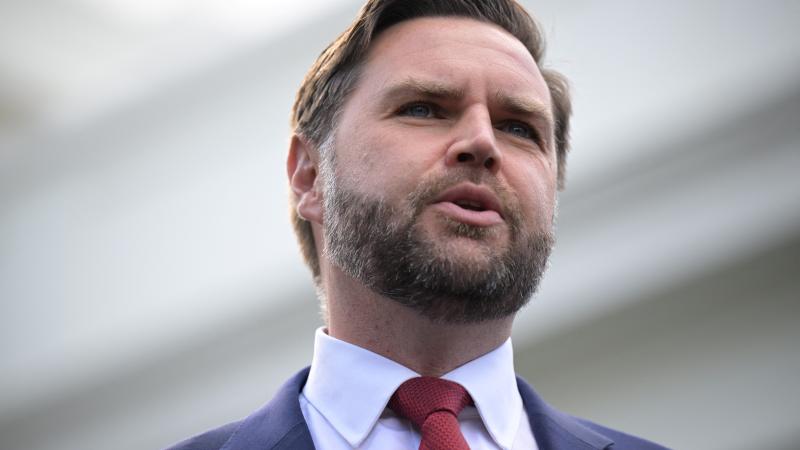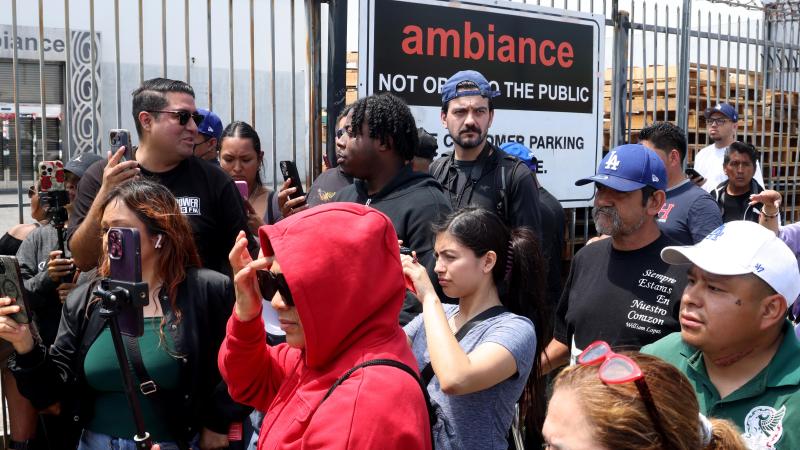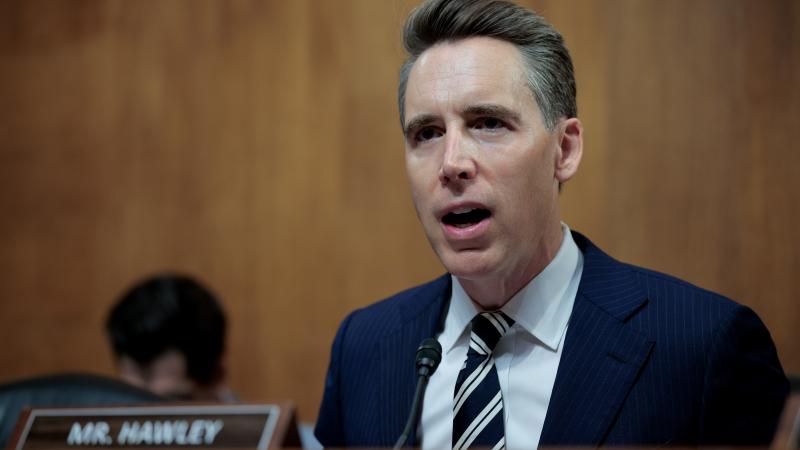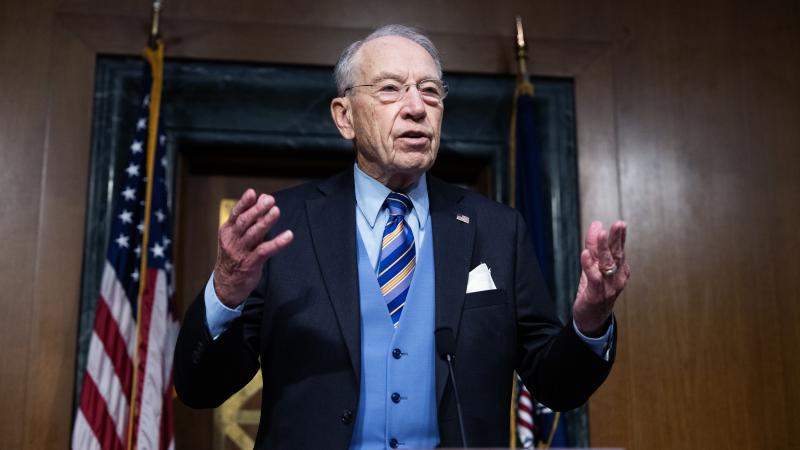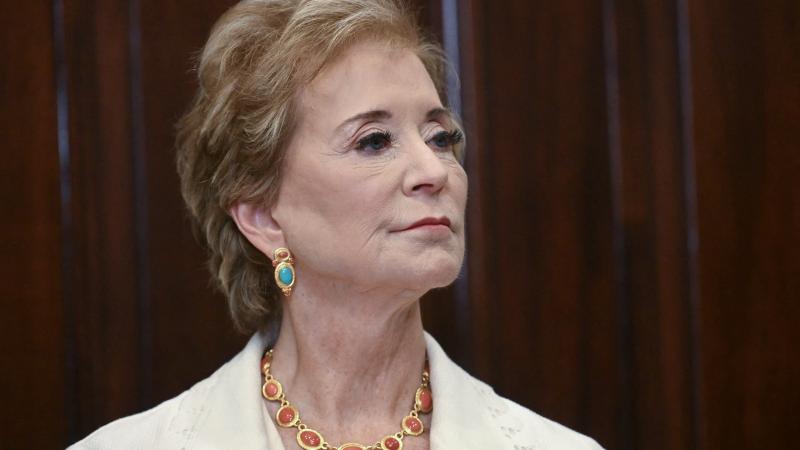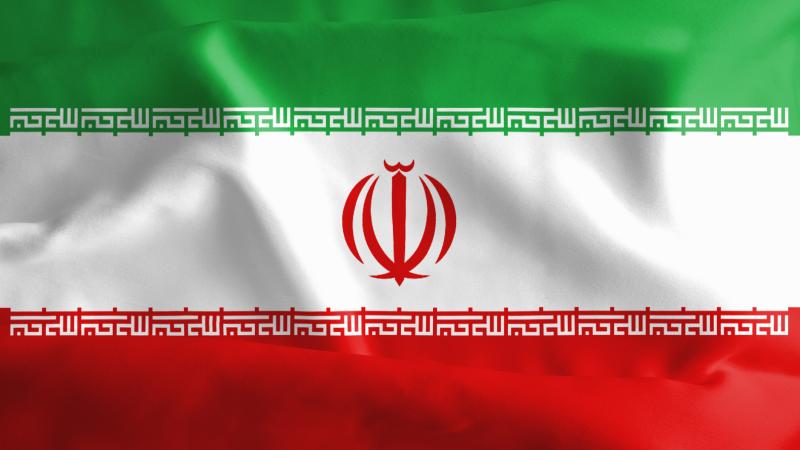Bill Clinton's once-secret cable to Iran a reminder Tehran's terror killed hundreds of Americans
Toll from Tehran’s terrorism and proxy attacks are a serious factors in Trump’s decision on whether to support or even join the Israeli war effort.
Three years after 19 Americans died in a bombing at a Saudi Arabian apartment complex, then-President Bill Clinton sent a cable that told Iran’s president a secret that the 42nd president wasn’t even willing to tell the American public: U.S. intelligence had ample evidence that Tehran was behind the deadly Khobar Towers terror attack.
“Message to President Khatami from President Clinton: The United States Government has received credible evidence that members of the Iranian Revolutionary Guard Corps, (IRGC) along with members of Lebanese and Saudi Hizballah, were directly involved in the planning and execution of the terrorist bombing in Saudi Arabia of the Khobar Towers military resident complex,” the 1999 cable declared.
“The United States views this in the gravest terms,” the cable continued. “We acknowledge that the bombing occurred prior to your election. Those responsible, however, have yet to face justice for this crime. And the IRGC may be involved in planning for further terrorist attacks against American citizens. The involvement of the IRGC in terrorist activity and planning abroad remains a cause of deep concern to us.”
You can read that memo here:
Chronic terrorism and two realities
The communiqué, released decades later under the Freedom of Information Act, is a stark reminder of two realities that President Trump must review as he decides in the next few days whether to commit U.S. military action to Israel’s war on Iran’s nuclear facilities.
The first is that Iran’s theocratic government has waged a chronic terrorist war against the United States since first taking hostages at the U.S. embassy in Tehran during the 1979 revolution. They have claimed nearly 1,000 American lives when Iranian-backed IEDs that killed troops in Iraq and Syria are counted alongside terror attacks at a Marine barracks and U.S. embassies in Lebanon, Khobar Towers and elsewhere.
Some attacks were thwarted, like a restaurant bombing in 2011 in Washington, D.C. targeting the Saudi ambassador to the United States, the kidnapping of an American-Iranian journalist and an assassination attempt against Trump last year that would have only added to the toll.
“When we hear that Iran is threatening, well, we're going to retaliate if you do something to us, we are already at war with Iran,” former National Security Council chief of staff Fred Fleitz told the John Solomon Reports podcast on Wednesday. “Iran is already committing acts of terrorism, and did a major one as recently as 2024 when an Iranian agent was indicted but got away for trying to kill Trump before the 2024 election.”
The second reality is that Democratic Party presidents like Clinton, Jimmy Carter, Barack Obama and Joe Biden have handled Iran’s deadly behavior mostly with kid gloves: nuclear deals (Obama), sanctions relief (Obama and Biden), $6 billion in unfrozen assets (Biden) and in Clinton’s case a secret offer to go easy on Iran for Khobar if it cleaned up its act.
“The United States has no hostile intentions toward the Islamic Republic of Iran and seeks good relations with your government,” Clinton’s cable told Khatami, dangling an offer of better relations if Iran simply brought to justice the plotters of the Khobar attack.
Clinton’s offer unmasked years later was shocking because he kept the American people from fully understanding the evidence of Iran’s complicity in a deadly attack.
The Clinton administration never filed criminal or civil action against the government of Iran alleging its involvement in the terror attack. But when George W. Bush's administration took office in 2001, it immediately charged several individuals as conspirators in the case and alleged directly that Iran was in fact behind the attack.
The high price of appeasement
In fact, former FBI Director Louis Freeh told this reporter in 2015 the Clinton administration kept his investigators from gaining full cooperation in the Khobar probe in hopes that looking the other way would create a better relationship with Iran.
“The bottom line was they weren’t interested. They were not at all responsive to it,” Freeh said about the evidence linking Iran to Khobar. “….“They were looking to change the relationships with the regime there, which is foreign policy. And the FBI has nothing to do with that.”
Such appeasement only kept Iran funded and emboldened to pursue terrorism against the United States and the West when it fit the ruling mullahs’ agenda, to seek a nuclear weapon in defiance of the United Nations and to thumb its nose at international sanctions like when it sells oil to communist China, critics say.
“Iran's been making their money selling their oil to China,” Sen. Marsha Blackburn, R-Tenn., told the Just the News, No Noise television show. “And under President Trump’s first term, you had sanctions on Iran, and they were broken. They couldn't fund their proxies. And then you have them come along with Biden, taking that off, making deals with them, sending them $6 billion."
“You give Iran $1 it's going to go one of two places: it is going to go into uranium enrichment or funding proxies. It's not going to go to the people,” she added.
Iran was added to the US list of state sponsors of terrorism in 1984, and has over the last four decades launched deadly attacks against Americans and Westerners, taking nearly 1,000 lives.
Non-interventionism being tested
Trump pledged to the American people during the campaign that he would not engage U.S. troops in “forever wars,” and he is facing extensive external pressure from MAGA-base luminaries like Charlie Kirk, Tucker Carlson and Steve Bannon to avoid direct US involvement in the war as well as internal resistance from non-interventionists on his team like Vice President J.D. Vance and Director of National Intelligence Tulsi Gabbard, who has openly questioned whether there really is intelligence that Iran was near to producing a nuclear warhead.
“Foreign wars/intervention/regime change put America last, kill innocent people, are making us broke, and will ultimately lead to our destruction,” Rep. Marjorie Taylor Greene, R-Ga., wrote on social media in a post summarizing the non-interventionist wing of the party philosophy.
On the flip side, more hawkish Republicans like Sens. Lindsey Graham, R-S.C., and Tom Cotton, R-Ark., are pleading with Trump not to pass up an attempt to crush Iran’s illicit nuclear weapons program and possibly unseat the radical Islamist regime that has terrorized the world since 1979.
"The forever war is the war that Iran has waged against the U.S., Israel, and the civilized world since 1979,” Cotton wrote on X this week.
At issue is whether Trump will allow Air Force B2 bombers to deliver MOABs, massive bombs able to crush the underground bunkers where Iran is believed to have secreted its nuclear weapons programs, and whether Trump would allow Israel to assassinate Iran’s Supreme Leader, the 86-year-old Ayatollah Khameini.
Preferring peace through strength and commerce
Trump has been coy about his intentions. One possibility is that Iran’s leadership folds ahead of a U.S. attack and makes a deal to give up its nuclear enrichment program or even flee to Russia in exile, experts said.
“Iran's leaders still have an opportunity to make a deal with Trump that would allow them to have a peaceful nuclear program, with no enrichment, and also economic benefits,” Fleitz said. “It's a really good deal. They don't deserve this deal because the Iranians have killed more than 1,000 American over the last 40 years or so.”
“Trump's willing to make this deal because he would prefer to have peace through strength and commerce. But if he doesn't do that, I believe Trump will probably drop bunker buster bombs to destroy Iran's main uranium enrichment facility at Fordo,” he added.
Iran's "Butcher's Bill"
Meanwhile, the toll of Iran’s murderous terrorism looms large in the final decision. That toll includes:
- 63 victims, including 17 Americans, killed in a 1983 truck bombing outside the U.S. embassy in Beirut, Lebanon;
- 220 Marines, 18 Navy sailors and three Army soldiers murdered in 1983 when two truck bombs exploded outside a Marine barracks in Beirut;
- Two Americans lost their lives in a 1984 suicide car bombing at the U.S. embassy in Beirut. 21 non-Americans, mostly Lebanese, were also killed in the attack;
- 19 Americans lost in the Khobar Tower bombing in 1996;
- 603 American service members slain in Iraq and Syria by Iranian-made improvised explosive devices or IEDs, according to a 2019 military review; and
- Three Americans killed in January 2024 in a drone attack on a U.S. outpost in Jordan near the border with Syria conducted by two Iranians.
There’s also a personal element for the president. Federal prosecutors last year charged a Pakistani man with plotting with Iran to assassinate Trump.
Fleitz predicted Trump will spend the final hours before making his decision on retaining his MAGA base's trust for whatever action he takes. “He wants to get the MAGA movement behind him, and they are obviously nervous, many of them, about the US possibly going to war with Iran,” he said. “And I think he's tried to make it clear that, look, I made up America first, and I've decided that stopping Iraq from getting a nuclear weapon is part of America first.
“I think he's trying to reassure his supporters that we're not sending troops in on the ground, and we're doing something that we have to do right now. And if we don't do this right now, we will wish we had because Iran probably will make a sprint to a bomb,” he added.




